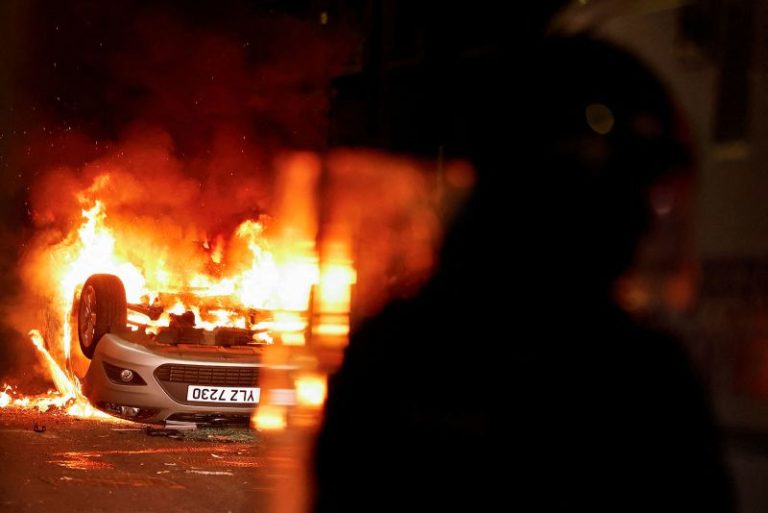In the heat of the Jamaican sun, where the wetlands glisten and buzz with life, an ancient predator is vanishing.
There are around 28 species of crocodiles found throughout the world’s tropical and subtropical regions. But there is only one species in Jamaica, found primarily along the southern coast from St. Thomas to Westmoreland.
Once revered and feared across the island, the American crocodile (Crocodylus acutus) has long ruled the mangroves and coastal lagoons.
But in recent years, its population has been decimated, due to illegal hunting, habitat loss and plastic pollution, as well as killings prompted by a lingering fear among locals.
Lawrence Henriques has made it his life’s mission to change that.
Known as “The Crocodile Guardian,” Henriques has spent the past four decades fighting for their survival.
He runs the Holland Bay Crocodile Sanctuary, a grassroots conservation project in the southeast of the island, perched on the edge of what he says is one of Jamaica’s last viable crocodile habitats.
From this remote corner of the island, he’s trying to undo years of damage: nursing sick crocs back to health, raising juveniles and restoring their numbers in the wild.
“There’s a real fear of crocodiles in Jamaica,” says Henriques. “They’re not tolerated by a lot of people. So if one turns up in someone’s backyard, it’s often killed for meat or just because people are afraid.”
Although crocodiles are often seen as aggressive and dangerous, attacks are few and far between. While reliable figures are hard to come by, according to the global database CrocAttack, there have been 11 incidents reported over the past decade in Jamaica, including one fatality in 2018.
That’s why Henriques is working to change the narrative about the animal and help people understand that they are far less threatening than their reputation suggests.
Born and raised in the Jamaican capital, Kingston, during the 1960s, Henriques always had a penchant for “creepy crawlies,” such as spiders, scorpions and snakes.
But it was crocodiles that truly captured his attention.
“We had a lot more crocodiles and a lot more habitat in those days,” he recalls. “I always had a half a dozen or so baby crocodiles rearing in my bedroom.”
That fascination eventually became a vocation. After studying overseas and learning more about reptiles when working with the Scientific Exploration Society, a UK charity, in Belize, Henriques returned to Jamaica in 1980. He was startled to find that despite crocodiles being classified as endangered in 1971 under the Wildlife Protection Act, there was little practical conservation happening.
“The laws were there, but nobody was doing anything,” he says. “The environmental agency was very under-resourced and still is to this day. And there was nobody really with expertise or knowledge on reptiles.”
Henriques volunteered to assist the Jamaican government, carrying out crocodile rescues and providing rehabilitation, all while holding down a job in the citrus industry.
He continued like this for almost 20 years, before a brief relocation to London, UK. When he returned to Jamaica in 2010, he launched what would become the Holland Bay Crocodile Sanctuary — a facility dedicated to rescue, rehabilitation and public education.
The sanctuary, which lies on the edge of a wetland, is home to 27 adult crocodiles along with 18 baby crocs. The juvenile crocs have been bred on site and are typically released into the wild after three years, while the adults have been rescued and rehabilitated after being hit by cars, caught in traps, or found living in squalid conditions. Over the past three years, around 90 have been successfully released back into the wild according to Henriques.
One of the crocodiles living at the sanctuary currently is Xena, who was discovered guarding her eggs in an area littered with trash, her skin slimy and her teeth gray from pollution.
Savannah Boan, an international ambassador from Gatorland Global, the conservation arm of the Florida-based wildlife park which helps to fund the sanctuary, says that since being relocated, Xena’s skin has healed and her teeth are white again. Her babies have also been raised at the facility and released into safe areas, helping to boost wild populations of the species.
Despite legal protections, crocodiles in Jamaica face growing threats. Poaching is rampant, often driven by demand for meat or misguided fear, according to officers from the country’s National Environment and Planning Agency (NEPA).
“Poaching is definitely a huge problem,” says Leighton Mamdeen, an environmental officer at NEPA. “We try to limit it through enforcement measures such as regular monitoring and we partner with the Jamaica Constabulary Force and the Jamaica Defence Force to do patrols.”
According to media reports, there is a thriving black market for crocodile meat and eggs in Jamaica, with the meat sold for as much as 5,000 Jamaican dollars ($31) a pound (450 grams) – more than 10 times the price of chicken meat.
This could stem from a widespread misconception in some rural communities that crocodile meat has aphrodisiac properties.
Damany Calder, another environmental officer at NEPA, says he has noticed a troubling pattern during callouts, when crocodiles are discovered with their tails removed.
“There’s a rumour about the crocodile tail… it’s (used) either for sexual performance, fertility or longevity,” he says.
In other cases, crocodiles have been found in backyard ponds, kept as pets, or used as props for TikTok stunts or music videos. There was even a time when a small live crocodile was found stuffed in a broken fridge, says Calder. He believes it may have been part of a ritual referred to as Obeah, a Jamaican religious tradition similar to voodoo.
Social media videos have occasionally resulted in prosecutions but only if culprits are caught in the act, Calder says. Individuals found guilty of killing crocodiles may be charged a maximum fine of $100,000 or face one-year imprisonment.
“The police are heavily involved, and they’re trying to improve the penalties,” says Henriques.
“But like everything else, it’s catching the person and proving it in court. It’s a very long, drawn-out process.”
Development is another killer.
Jamaica’s mangroves and wetlands are currently being cleared for tourism and residential development according to The Forestry Department. This affects the country’s coastal resilience, as mangroves reduce wave energy and storm surges, helping to prevent flooding, and it damages biodiversity, as they are serve as nurseries for fish and provide essential habitat for species like crocodiles.
As this territory shrinks, crocodiles are forced closer to humans.
“These animals are ending up in places they’ve always lived,” Henriques says. “But now those places are towns and roads … We’ve taken their habitat.”
To Henriques, the crocodile isn’t a menace — it’s a keystone species that has been on the island for millions of years. It even features on the Jamaican coat of arms, which shows a crocodile perched atop a royal helmet and mantling, designed to symbolize the island’s unique wildlife and natural heritage.
“They’re like engineers of the ecosystem,” he says. “They dig channels, control fish populations and keep the wetlands healthy.”
He explains that the presence of these apex predators helps to regulate biodiversity within aquatic ecosystems by controlling prey populations and creating microhabitats that support various flora and fauna.
But Henriques warns that because of poaching and habitat loss, the island no longer has many large male crocodiles left along the coastline: “Most now are smaller. It’s a serious shift.”
“What’s happening in Jamaica reflects a global pattern — wetland species are disappearing, and with them, the health of the entire ecosystem,” he adds.
Despite the challenges, there’s a cautious sense of hope.
Henriques and NEPA have ramped up community outreach and education programs, especially in areas near crocodile habitats.
“One of the most impactful things we’ve done is visit schools,” says Mamdeen. “If you start with the kids, you’ll have a greater chance of securing the animal’s future.”
When reports of a crocodile in a pool of water near a school caused panic among parents and children, NEPA directed its outreach efforts toward local students.
“We told them: crocodiles would rather run (from you) than rush (towards) you,” he says. “If you’re near water at night, walk with a stick. If the animal is touched, it moves.”
Henriques added: “People are beginning to understand these animals have a place … They’re not pests. They’re survivors.”
Still, the sanctuary is one of only a few conservation efforts on the island, and without continued support, Henriques fears Jamaica’s crocodiles may not survive the next few decades.
“We can’t afford to lose them,” he says. “They’ve been here longer than we have. They’re part of this land.”
This post appeared first on cnn.com



